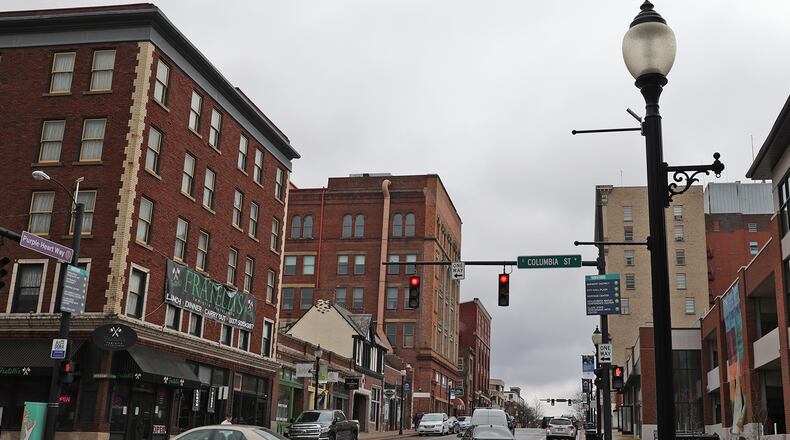Heck, in an address to Springfield Rotary said voters would be asked to extend the existing 0.4% bump in income tax, set to expire in 2022, for another 10 years. Funding from the renewal will continue to be used for public safety and other operating expenses as well as street and other capital improvements, he added.
The earned income tax levy was originally passed by voters by a 2-to-1 margin in May 2017 increasing revenue generated from that tax 2% to 2.4%. That levy was added to ballot after the city saw a cut in local government funding from the state and faced a budget crisis that threatened local services, said Heck.
The Local government fund has steadily decreased for over a decade. That funding has decreased from $5.4 million in 2007 to $1.9 million in 2020, according to figures provided by the city.
City officials say that since the original levy was passed, the city has been able to reopen a police substation and a fire station as well as pave 34 neighborhood streets.
Heck said by extending it for 10 more years, it allows the city to engage in long term planning related to local infrastructure improvement projects as well protect investments made in the community.
He said that includes continuing street paving projects, focusing on infrastructure upgrades as well as further investing in the city’s local fire stations, which are on average 56 years old, and replacing old equipment used by first responders.
The levy also allows the city to invest at least $2 million each year towards paving residential streets as previous neighborhood streets programs were cut in 2009 before the levy was passed.
“A lot of the focus has been related to infrastructure improvements, specifically on the poor shape of underground infrastructure. We know that we need to plan and protect our investments,” Heck said.
When the levy was first passed, Heck said that there was not a set amount of time that it would be renewed for. He said that by extending it for a period of 10 years, the city would be able to better plan improvements.
Heck said if the levy renewal is not passed in May, the city would consider placing it on the ballot in the fall.
“If it is not renewed, we are looking at significant cuts,” he said, noting that could have an impact on city operations and could lead to layoffs as well as a decrease in services provided to residents.
About the Author

